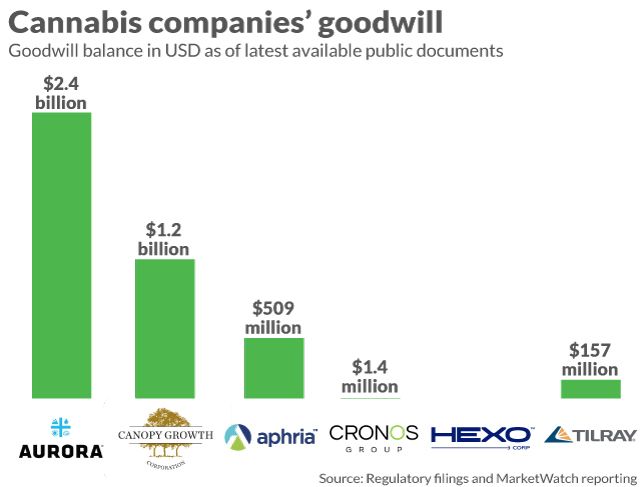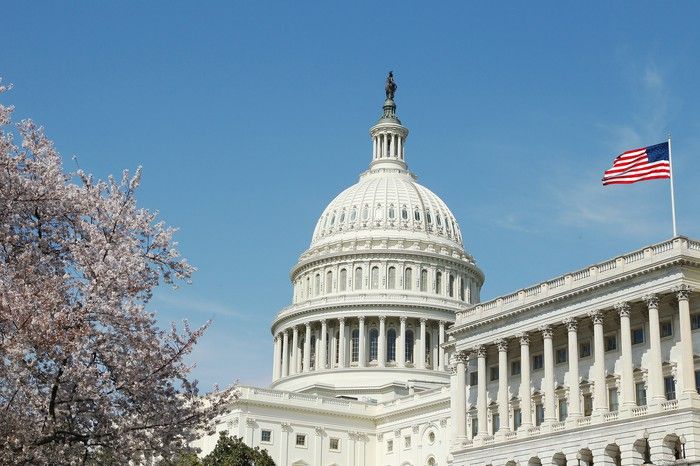Baron23
Well-Known Member
How the vocal anti-marijuana minority is sabotaging legal cannabis
On the eve of November 7, while the majority of Michigan voters celebrated the passage of Proposal 1 — the initiative to legalize adult-use marijuana — a dejected Scott Greenlee, the president of anti-cannabis organization Healthy and Productive Michigan, stood behind a podium and told his supporters via Facebook Live that their campaign against cannabis had failed. That they had lost, writes Andrew Memtook.
Yet he made it clear that his organization, which takes financial support from anti-weed holdout Smart Approaches to Marijuana (SAM), would not give up on their fight. Even after a state legalizes cannabis, he impressed, the political, albeit antiquated, war on weed rages on.
As marijuana legalization sweeps the nation, Greenlee and his colleagues may seem like a losing minority, swimming upstream against the rapids. But if cannabis activists and business investors don't remain vigilant and prepared for those like Greenlee, they will find out the hard way how insidious and pervasive the anti-weed lobby really is.
At an October 2 meeting, the Milpitas City Council voted 3-2 in favor of an ordinance sanctioning 10 cannabis businesses in the small central Californian city. But less than two months later, the city began to move forward with a permanent ban.
This change resulted from a contingent of anti-cannabis advocates who vocalized their dismay with the October vote. They went to all the subsequent council meetings, declaring their opposition loud and clear. Many of these advocates even brought their children.
“You have them with children running around the lobby until 10 o'clock at night or later and a child saying to the council, 'Drugs are bad. My dog doesn't like them. Don't vote for marijuana,'” said Pamela Epstein from the cannabis business consulting company Green Wise Consulting, who attended Milpitas City Council Meetings. “[They're] systemically teaching a new generation to be afraid of something," she said.
Epstein and other cannabis activists in attendance were alarmed at how the "vocal minority" filled city council meetings and, at the eleventh hour, changed the decision of local government officials — ignoring the wish of Milpitas' majority (51.2 percent of the city's constituents), who didn’t feel the need to show up because they felt their voice had already been heard when the city council officials cast their vote, reflecting the will of the people. Per Milpitas City Council minutes, not much progress has been made in overturning the ban.
Similar strategies have been employed and successful in other Bay area communities, such as Mountain View, where an ordinance was changed even after hopeful cannabis entrepreneurs submitted applications and invested in storefront businesses. Ultimately, it was changed so that only three warehouse and delivery businesses could operate within the city. And so, currently, no cannabis storefronts are permitted to operate within Mountain View.
After the Milpitas city council meeting on November 20, anti-cannabis activist Frank Lee claimed victory on the blog StopPot.org: “We managed to convince them to reverse course."
And indeed, to successfully swim upstream against the inevitable tide of legal weed, is a victory. “They feel vindicated, they feel empowered, they've been successful,” Epstein said. “They've been successful around the state at not only stopping but also reverting progressive [cannabis] regulation. So we've got to get back as an industry to our advocacy roots because we are not yet at a point to enjoy the luxury of simply doing business.”
While Milpitas and Mountain View residents can still simply drive to neighboring communities like San Jose to purchase cannabis products, there is a growing concern throughout the state that voters who helped approve adult-use marijuana do not have legal access to it. These communities are often referred to as “pot deserts” — each defined as an area in California where residents have to drive at least 60 miles to find a licensed dispensary in order to legally buy marijuana.
Back in Michigan, adult-use cannabis business licenses aren't available yet, but Greenlee and Healthy and Productive Michigan are already preparing for when that happens by encouraging communities to shut the door on the marijuana industry. His goal is to make the entire state of Michigan a giant pot dessert.
In Michigan, similar to California, individual jurisdictions are able to opt-out of cannabis — essentially, banning adult-use marijuana businesses from operating within their community. Healthy and Productive Michigan acts as a service for Michigan communities looking to opt-out, and so far more than 500 jurisdictions (out of 1,773) have done so.
“We want to see every county say no to the business of marijuana because if that's the case then nobody's going to have access to marijuana,” Greenlee said.
He says he believes that marijuana is a hindrance to every community in the state and that most Michigan voters didn’t understand what they were saying “yes” to when they cast their ballots on November 6. Not only does he think that Michigan won't financially benefit from adult use marijuana (despite that other states have from their own legalization programs), but moreover he's committed to a strong anti-weed belief system founded in traditional Drug War rhetoric.
Another growing concern for the cannabis industry is the growing number of lawsuits.
Backed by the anti-marijuana group Safe Streets Alliance, Phillis Windy Hope Reilly and Michael P. Reilly filed a lawsuit in 2015 against a legal grow operation run by Alternative Holistic Healing in Colorado. The lawsuit alleged that the Reillys' property value decreased after Alternative Holistic Healing opened up nearby and led to a drop in their horseback riding business due to the smell of cannabis and the fact that marijuana is federally illegal.
The U.S. Court of Appeals for the Tenth Circuit ruled that the lawsuit could continue, on account of the Racketeer Influenced and Corrupt Organizations Act (RICO) — which was initially put in place to go after the mafia. A nearby Holiday Inn also sued Alternative Holistic Healing, which ultimately settled the case and closed shop.
The success against Alternative Holistic Healing set an encouraging example for similar lawsuits. In Oregon, more than 40 businesses associated with the cannabis processing facility Oregon Candy Farm were sued by its neighbor, Laura Underwood and her lawyer Rachel McCart. Both have a history of opposing the cannabis industry, with McCart having filed her first racketeering lawsuit against a neighboring cannabis company in 2017, and Underwood having worked with the group Unwanted Pot Grows.
"We didn't want to settle. That was the main thing because if you settle, that incentivizes this behavior,” said Mason Walker, CEO of East Fork Cultivars, which was named in the lawsuit. “So going into it, my business partners and several of my friends that are also named defendants in this were like, 'We did not want to settle. Even if we have to pay a little bit extra to have [the case get] dismissed, we don't want to incentivize those bad behaviors.'"
But a dismissal doesn’t necessarily mean that anti-cannabis groups or individuals will regret their decision to sue.
“I don’t think it was a mistake. I'm not sure that the [anti-cannabis] advocacy groups behind the lawsuits necessarily believe they would win,” said Professor Sean O’Connor, an expert in cannabis law at George Mason University. “I think it was a pragmatic tool or a tactic to try to slow down the growth of cannabis companies.”
Local government officials that oppose marijuana have also tried their hand at filing lawsuits in order to keep legal marijuana out of neighboring communities.
Town officials in Saugus, Massachusetts, which has banned all marijuana businesses, are suing the neighboring city of Lynn and a hopeful entrepreneur, who's in the process of opening a cannabis business, Massachusetts Green Retail, on the border. While the business has a license to operate in Lynn, the lawsuit alleges that 10 inches of its retail space is technically in Saugus and that, therefore, the permit should be denied. Saugus also alleges that patrons of Massachusetts Green Retail will need to park within their city limits.
“This is their tactic to try to scare me and railroad me,” said Jordan Avery, the president and CEO of Massachusetts Green Retail. “I'm not going to let that happen. I'm excited to be a cannabis entrepreneur.”
Avery and his legal team do not believe that Saugus has a case, and he plans to proceed with opening his business anyway. At the same time, he does acknowledge that the lawsuit is an expensive strain on his business venture — one that he has to dig into his own capital to fight. Avery says it helps that Lynn is being supportive of Massachusetts Green Retail and has not backed down. The mayor even signed a host agreement (a document that a marijuana business needs in Massachusetts in order to operate) with Avery after the lawsuit had already been filed.
Since Avery announced at the beginning of this year that he was going to open a cannabis business, he’s also been harassed. For months, people were leaving signs in front of his shop that said things like “Save Saugus. No pot shops.” But recently, the persecution escalated.
After a call from his landlord, Avery rushed to his Massachusetts Green Retail shop to see that his storefront had been broken into and vandalized. A noose holding a knife was hung from the ceiling and anti-Semitic slurs were spray-painted on the walls. (The building owner is Jewish, while Avery, himself, is also converting to the faith.)
“I was speechless and irritated that this type of behavior is still happening," Avery said. “It was targeted at me.”
While violent, racist, and illegal actions aren’t something Greenlee would condone, he is open to bringing some of the lawsuits to Michigan that other anti-cannabis organizations have filed in other states.
“We've had all kinds of discussions with all kinds of law enforcement, from local levels to federal levels,” said Greenlee, who's a lawyer by trade. “We're aware that some other states have certainly gone down that path [of litigation]. We're not in a position right now to rule anything out. Yet, I can also tell you I don't have anything planned to do today. So we're aware of various legal options and various things that can be done.”
Southeastern and Midwestern states traditionally aren’t as progressive compared to Massachusetts, Colorado, California, and Oregon, which begs the question — will lawsuits and other politically driven tactics have more success in states like Michigan and Illinois than they have elsewhere?
“I would imagine as this goes on in the Midwest and the Southeast, we're going to see more pushback because there are more conservative populations there that are willing to try to fight,” said Hillary Bricken, a lawyer and writer for CannaLawBlog.
For now, Greenlee and other members of Healthy and Productive Michigan plan to push back against marijuana legalization by speaking to local communities and sharing anti-cannabis information. His anti-weed campaign not only reminds the audience that Michigan employers can still fire people who test positive for cannabis, but also spreads false information (like an op-ed by SAM's Kevin Sabet) about the safety or economic realities of legal marijuana.
If the cannabis industry isn’t prepared to keep fighting even after their state legalizes, then much of the progress toward ending prohibition could be mitigated.
“We need to be responsible in how we approach this and do so in a meaningful manner,” Epstein said. “There's no need to vilify the opposition. If they have concerns, let's address them. We've got analytics. We've got data. We've got the acknowledgment that the more you regulate, the less of the illicit market we have to contend with.”
On the eve of November 7, while the majority of Michigan voters celebrated the passage of Proposal 1 — the initiative to legalize adult-use marijuana — a dejected Scott Greenlee, the president of anti-cannabis organization Healthy and Productive Michigan, stood behind a podium and told his supporters via Facebook Live that their campaign against cannabis had failed. That they had lost, writes Andrew Memtook.
Yet he made it clear that his organization, which takes financial support from anti-weed holdout Smart Approaches to Marijuana (SAM), would not give up on their fight. Even after a state legalizes cannabis, he impressed, the political, albeit antiquated, war on weed rages on.
As marijuana legalization sweeps the nation, Greenlee and his colleagues may seem like a losing minority, swimming upstream against the rapids. But if cannabis activists and business investors don't remain vigilant and prepared for those like Greenlee, they will find out the hard way how insidious and pervasive the anti-weed lobby really is.
At an October 2 meeting, the Milpitas City Council voted 3-2 in favor of an ordinance sanctioning 10 cannabis businesses in the small central Californian city. But less than two months later, the city began to move forward with a permanent ban.
This change resulted from a contingent of anti-cannabis advocates who vocalized their dismay with the October vote. They went to all the subsequent council meetings, declaring their opposition loud and clear. Many of these advocates even brought their children.
“You have them with children running around the lobby until 10 o'clock at night or later and a child saying to the council, 'Drugs are bad. My dog doesn't like them. Don't vote for marijuana,'” said Pamela Epstein from the cannabis business consulting company Green Wise Consulting, who attended Milpitas City Council Meetings. “[They're] systemically teaching a new generation to be afraid of something," she said.
Epstein and other cannabis activists in attendance were alarmed at how the "vocal minority" filled city council meetings and, at the eleventh hour, changed the decision of local government officials — ignoring the wish of Milpitas' majority (51.2 percent of the city's constituents), who didn’t feel the need to show up because they felt their voice had already been heard when the city council officials cast their vote, reflecting the will of the people. Per Milpitas City Council minutes, not much progress has been made in overturning the ban.
Similar strategies have been employed and successful in other Bay area communities, such as Mountain View, where an ordinance was changed even after hopeful cannabis entrepreneurs submitted applications and invested in storefront businesses. Ultimately, it was changed so that only three warehouse and delivery businesses could operate within the city. And so, currently, no cannabis storefronts are permitted to operate within Mountain View.
After the Milpitas city council meeting on November 20, anti-cannabis activist Frank Lee claimed victory on the blog StopPot.org: “We managed to convince them to reverse course."
And indeed, to successfully swim upstream against the inevitable tide of legal weed, is a victory. “They feel vindicated, they feel empowered, they've been successful,” Epstein said. “They've been successful around the state at not only stopping but also reverting progressive [cannabis] regulation. So we've got to get back as an industry to our advocacy roots because we are not yet at a point to enjoy the luxury of simply doing business.”
While Milpitas and Mountain View residents can still simply drive to neighboring communities like San Jose to purchase cannabis products, there is a growing concern throughout the state that voters who helped approve adult-use marijuana do not have legal access to it. These communities are often referred to as “pot deserts” — each defined as an area in California where residents have to drive at least 60 miles to find a licensed dispensary in order to legally buy marijuana.
Back in Michigan, adult-use cannabis business licenses aren't available yet, but Greenlee and Healthy and Productive Michigan are already preparing for when that happens by encouraging communities to shut the door on the marijuana industry. His goal is to make the entire state of Michigan a giant pot dessert.
In Michigan, similar to California, individual jurisdictions are able to opt-out of cannabis — essentially, banning adult-use marijuana businesses from operating within their community. Healthy and Productive Michigan acts as a service for Michigan communities looking to opt-out, and so far more than 500 jurisdictions (out of 1,773) have done so.
“We want to see every county say no to the business of marijuana because if that's the case then nobody's going to have access to marijuana,” Greenlee said.
He says he believes that marijuana is a hindrance to every community in the state and that most Michigan voters didn’t understand what they were saying “yes” to when they cast their ballots on November 6. Not only does he think that Michigan won't financially benefit from adult use marijuana (despite that other states have from their own legalization programs), but moreover he's committed to a strong anti-weed belief system founded in traditional Drug War rhetoric.
Another growing concern for the cannabis industry is the growing number of lawsuits.
Backed by the anti-marijuana group Safe Streets Alliance, Phillis Windy Hope Reilly and Michael P. Reilly filed a lawsuit in 2015 against a legal grow operation run by Alternative Holistic Healing in Colorado. The lawsuit alleged that the Reillys' property value decreased after Alternative Holistic Healing opened up nearby and led to a drop in their horseback riding business due to the smell of cannabis and the fact that marijuana is federally illegal.
The U.S. Court of Appeals for the Tenth Circuit ruled that the lawsuit could continue, on account of the Racketeer Influenced and Corrupt Organizations Act (RICO) — which was initially put in place to go after the mafia. A nearby Holiday Inn also sued Alternative Holistic Healing, which ultimately settled the case and closed shop.
The success against Alternative Holistic Healing set an encouraging example for similar lawsuits. In Oregon, more than 40 businesses associated with the cannabis processing facility Oregon Candy Farm were sued by its neighbor, Laura Underwood and her lawyer Rachel McCart. Both have a history of opposing the cannabis industry, with McCart having filed her first racketeering lawsuit against a neighboring cannabis company in 2017, and Underwood having worked with the group Unwanted Pot Grows.
"We didn't want to settle. That was the main thing because if you settle, that incentivizes this behavior,” said Mason Walker, CEO of East Fork Cultivars, which was named in the lawsuit. “So going into it, my business partners and several of my friends that are also named defendants in this were like, 'We did not want to settle. Even if we have to pay a little bit extra to have [the case get] dismissed, we don't want to incentivize those bad behaviors.'"
But a dismissal doesn’t necessarily mean that anti-cannabis groups or individuals will regret their decision to sue.
“I don’t think it was a mistake. I'm not sure that the [anti-cannabis] advocacy groups behind the lawsuits necessarily believe they would win,” said Professor Sean O’Connor, an expert in cannabis law at George Mason University. “I think it was a pragmatic tool or a tactic to try to slow down the growth of cannabis companies.”
Local government officials that oppose marijuana have also tried their hand at filing lawsuits in order to keep legal marijuana out of neighboring communities.
Town officials in Saugus, Massachusetts, which has banned all marijuana businesses, are suing the neighboring city of Lynn and a hopeful entrepreneur, who's in the process of opening a cannabis business, Massachusetts Green Retail, on the border. While the business has a license to operate in Lynn, the lawsuit alleges that 10 inches of its retail space is technically in Saugus and that, therefore, the permit should be denied. Saugus also alleges that patrons of Massachusetts Green Retail will need to park within their city limits.
“This is their tactic to try to scare me and railroad me,” said Jordan Avery, the president and CEO of Massachusetts Green Retail. “I'm not going to let that happen. I'm excited to be a cannabis entrepreneur.”
Avery and his legal team do not believe that Saugus has a case, and he plans to proceed with opening his business anyway. At the same time, he does acknowledge that the lawsuit is an expensive strain on his business venture — one that he has to dig into his own capital to fight. Avery says it helps that Lynn is being supportive of Massachusetts Green Retail and has not backed down. The mayor even signed a host agreement (a document that a marijuana business needs in Massachusetts in order to operate) with Avery after the lawsuit had already been filed.
Since Avery announced at the beginning of this year that he was going to open a cannabis business, he’s also been harassed. For months, people were leaving signs in front of his shop that said things like “Save Saugus. No pot shops.” But recently, the persecution escalated.
After a call from his landlord, Avery rushed to his Massachusetts Green Retail shop to see that his storefront had been broken into and vandalized. A noose holding a knife was hung from the ceiling and anti-Semitic slurs were spray-painted on the walls. (The building owner is Jewish, while Avery, himself, is also converting to the faith.)
“I was speechless and irritated that this type of behavior is still happening," Avery said. “It was targeted at me.”
While violent, racist, and illegal actions aren’t something Greenlee would condone, he is open to bringing some of the lawsuits to Michigan that other anti-cannabis organizations have filed in other states.
“We've had all kinds of discussions with all kinds of law enforcement, from local levels to federal levels,” said Greenlee, who's a lawyer by trade. “We're aware that some other states have certainly gone down that path [of litigation]. We're not in a position right now to rule anything out. Yet, I can also tell you I don't have anything planned to do today. So we're aware of various legal options and various things that can be done.”
Southeastern and Midwestern states traditionally aren’t as progressive compared to Massachusetts, Colorado, California, and Oregon, which begs the question — will lawsuits and other politically driven tactics have more success in states like Michigan and Illinois than they have elsewhere?
“I would imagine as this goes on in the Midwest and the Southeast, we're going to see more pushback because there are more conservative populations there that are willing to try to fight,” said Hillary Bricken, a lawyer and writer for CannaLawBlog.
For now, Greenlee and other members of Healthy and Productive Michigan plan to push back against marijuana legalization by speaking to local communities and sharing anti-cannabis information. His anti-weed campaign not only reminds the audience that Michigan employers can still fire people who test positive for cannabis, but also spreads false information (like an op-ed by SAM's Kevin Sabet) about the safety or economic realities of legal marijuana.
If the cannabis industry isn’t prepared to keep fighting even after their state legalizes, then much of the progress toward ending prohibition could be mitigated.
“We need to be responsible in how we approach this and do so in a meaningful manner,” Epstein said. “There's no need to vilify the opposition. If they have concerns, let's address them. We've got analytics. We've got data. We've got the acknowledgment that the more you regulate, the less of the illicit market we have to contend with.”













